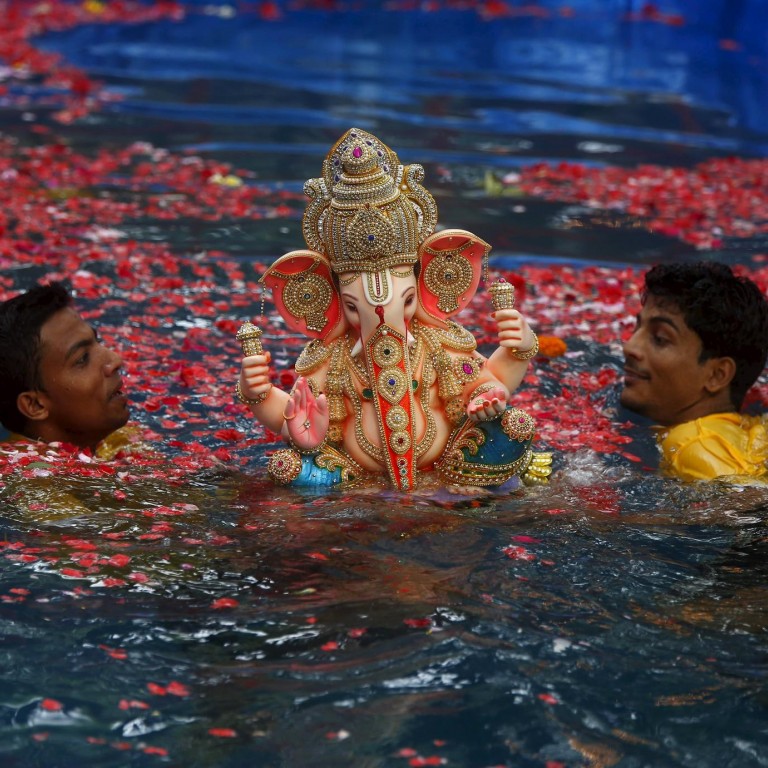
Age-old Hindu festival gets 21st-century treatment as testing ground for new app
Compiling data taken at medical tents, the app tells festival-goers about any outbreaks of dengue, jaundice or other diseases.
At an ancient Hindu riverside festival, the millions hoping to cleanse themselves of sin are also unwittingly becoming partners in finding hi-tech solutions to crowd control, disease outbreaks and public security.
A group of technology innovators has launched a digital information platform at the six-week Kumbh Mela, or Pitcher Festival, that they say is helping to maintain order and calm among those camping near the river bank and piling into the water for one of humanity's largest religious gatherings.
Twelve years ago, dozens died in a stampede in the same festival. Halfway through this year's event there have been no such incidents as the immense crowds wade into the Godavari River, in an ancient ritual seeking spiritual rebirth from Hindu gods.
"We had thought about Kumbh Mela as this gathering of masses, people who are on the path of self-discovery. But in a way, innovation and innovators are also always on a path of self-discovery," said Ramesh Raskar, associate professor at the Massachusetts Institute of Technology Media Lab, which has been leading scientists, charity workers and officials from around India in a two-year effort dubbed "KumbhaThon" to develop technology solutions to better manage population-dense events.
"We want to see how we can take this amazing challenge in crowds and food and security and housing and transportation ... and see how we can make this a tech-savvy Kumbh Mela," he said.
Compiling data taken at medical tents, the app tells festival-goers about any outbreaks of dengue, jaundice or other diseases, though so far there have been no outbreaks of note.
Using mobile phone power data to estimate crowd sizes, the digital platform also gives officials information that helps them decide when to put up blockades or disperse crowds.
"If the density of the crowd is increasing at some location, we will control the crowd using a hold-and-release method," district official Raghunath Gawade said. "We have created many holding areas."
The KumbhaThon team has discovered that most bathers prefer to go into the river in the afternoon, and mornings are relatively unpopulated. On the most auspicious bathing days, however, the riverfront is constantly packed.
"It's amazing. You can see where the crowds are, you can see the hot spots in the city," said Raskar, who grew up in Nashik and believes the ancient festival is ideal for launching the app.
"If you look at AirBnB or Uber or redBus, they're turning the world upside down because they're relying on making smart citizens more empowered."
